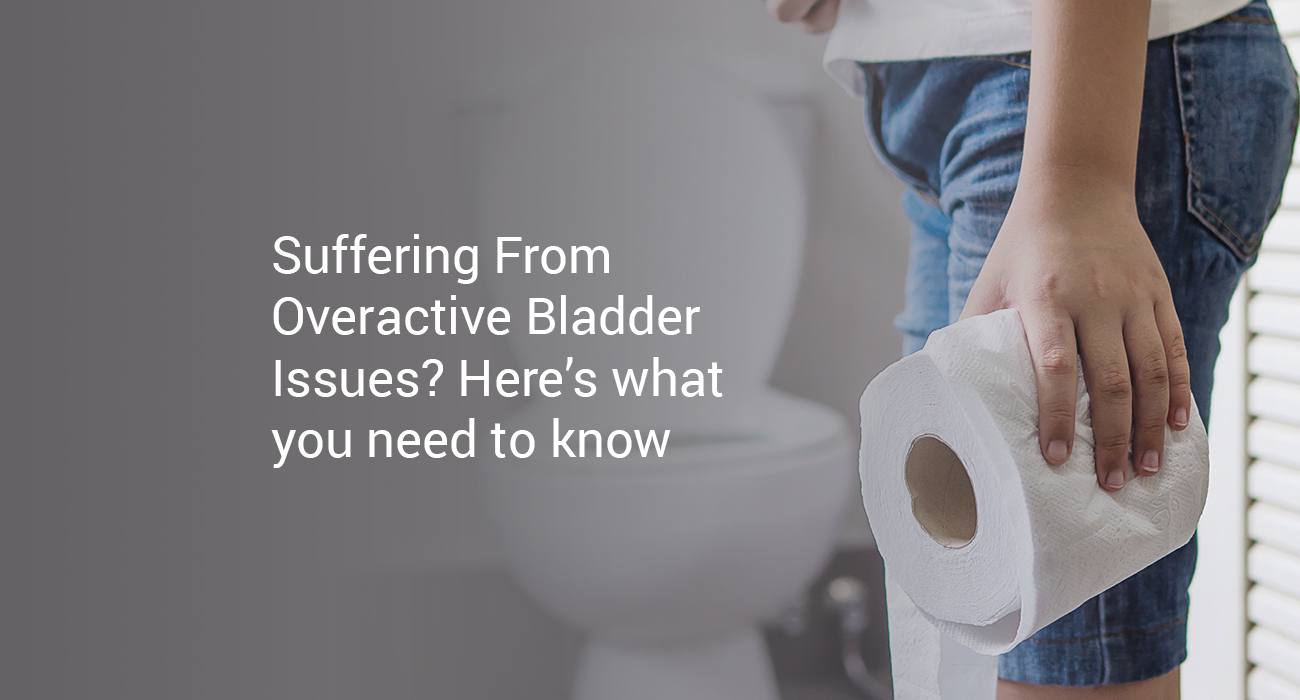08/20/2022
Do you often have to run to the restroom? 14% of men and 12% of women suffer from an overactive bladder. An overactive bladder is a condition that can be embarrassing and debilitating as well. The good news is that it can be treated easily. However, most people do not seek medical treatment for such issues, especially older patients who are more likely to be untreated. Here we have discussed overactive bladder disease in detail. Our best Nephrologist doctor in Jaipur has helped us with the same.
What are the causes of overactive bladder issues?
Overactive Bladder(OAB) issues can happen to men or women aged around 40 years.
OAB occurs when the muscles that control bladder function begin to act uncontrollably. This can be caused by a variety of factors, including lifestyle. For example, if you consume a lot of alcohol and caffeine, you may develop OAB.
Caffeine and alcohol are diuretics, which cause the body to produce more urine. Drinking a lot of fluids in general, whether caffeinated, alcoholic, or not, can aggravate OAB symptoms.
What are the symptoms associated with OAB?
As per our experts practicing in the Urology Surgery hospital in Jaipur, you may experience the following symptoms if you have an overactive bladder:
- Feeling a strong urge to urinate that is difficult to suppress
- Unintentional urine loss occurs immediately following an urgent need to urinate (urgency incontinence)
- Urinate frequently, typically eight or more times per day.
- Getting up more than twice during the night to urinate (nocturia)
Even if you are able to get to the toilet when you feel the need to urinate, unexpected frequent urination and nighttime urination can cause problems in your life.
When should you seek medical help?
An overactive bladder should not be considered a normal part of the aging process. It may be difficult to discuss your symptoms, but if they are bothering you or interfering with your life, speak with your doctor. There are treatments available that may be beneficial to you.
What are the various options for treating OAB?
To treat OAB, you might be asked to make some lifestyle changes. Prescription- based medication can also do the same. However, you should only switch to medicine when the first option is not working.
- Avoiding bladder irritants like coffee, tea, carbonated beverages, and spicy foods will also help to control symptoms. An overactive bladder can be exacerbated by weak pelvic floor muscles. Pelvic floor muscle exercises, also known as Kegel exercises, can help reduce OAB symptoms by improving muscular control.
- Medication for OAB typically works by calming the overactivity of the muscle in the bladder wall, reducing both the frequency and unwanted urges to urinate. Oral medications frequently work better when combined with behavioral therapy or lifestyle changes.
Your doctor will know which medication is effective for you. They will examine you to see if you get relief from the medication or if it causes side effects. Some people experience dry mouths and eyes, constipation, and blurred vision. If one medicine doesn't work, your doctor may ask you to try a different one, or give you a different one to try, or have you try two types together. Many people benefit from both lifestyle changes and medicine.
If lifestyle changes and medication are ineffective, injections may be recommended. The most potential option our experts can provide is bladder botox treatment.
Botox relieves urinary urgency and urge incontinence by relaxing the muscles of the bladder wall. It can prevent the bladder muscles from squeezing excessively.
Your doctor will insert a cystoscope into the bladder to see inside the bladder before injecting botulinum toxin. The doctor will then inject very small amounts of botulinum toxin into the bladder muscle. This procedure is carried out in the office under local anesthesia. Botox's effects can last up to six months.
You might require additional treatment if your symptoms persist.
Your doctor will want to know if the botox treatment is effective for you. They will examine you to see if you are getting relief or if you are not holding in too much urine. If your urine isn't releasing properly, you may need to use a catheter for a while.
Other treatment option-
Neuromodulation therapy: Nerve stimulation, also known as neuromodulation therapy, is another treatment option for people who require extra assistance.
This treatment involves sending electrical pulses to nerves that share the same path as the bladder. The nerve signals between your bladder and brain do not communicate properly in OAB. These electrical pulses allow the brain and bladder nerves to communicate, allowing the bladder to function properly and alleviating OAB symptoms.
If you or any of your loved ones are suffering from overactive bladder issues, you can consult our best doctors in Jaipur. They will help you by providing prompt treatment and aftercare for the same.

